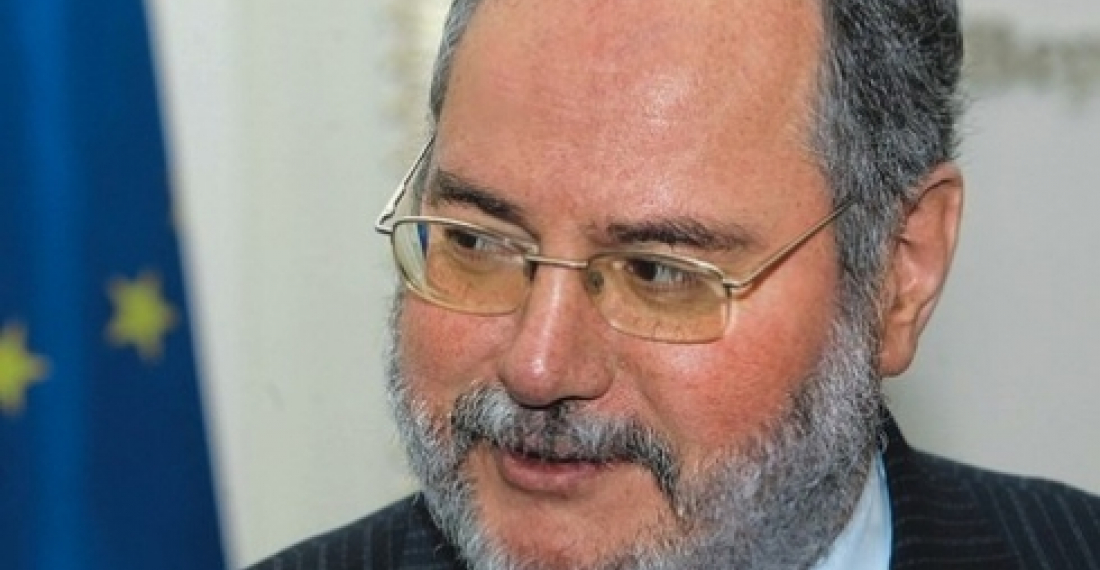Former co-Chair of the OSCE Minsk process, retired French diplomat Jacques Faure, on Friday told participants of the 89th Rose Roth Seminar organized by the NATO Parliamentary Assembly in Yerevan that despite the fact it was unlikely that a full war will start in Karabakh soon, incidents will continue and maybe increase. Faure said that military reforms were taking place within the Azerbaijan army but were not completed. The country had purchased large quantities of arms but training on them was still not finished. But he warned that time "was not on the side of neither the mediators nor the parties involved in the Karabakh conflict".
Faure was speaking in a panel discussing the role of mediation in the current Nagorno-Karabakh conflict.
Opening the discussion the Deputy Minister of Foreign Affairs of Armenia, Ashot Hovakimian spoke of a deteriorating situation on the front line since July 2014, including the use of large caliber weapons, sabotage and the targeting of civilians. He said that the OSCE Co-Chair mediators had reminded Azerbaijan of the need to respect the cease fire and the peace process. Hovakimian said that Armenia always supported confidence building measures in all forms and believes that without trust and mutual confidence no solution to the conflict is possible. Deputy Foreign Minister Hovakimian said that Armenia has the political will to resolve the conflict and had shown this in the negotiations, but that Azerbaijan lacked this political will.
Zaur Shiriev, Researcher at Chatham House in London said that there was a huge gap between expectations of what the Minsk Group can do, and the actual track record of what they had practically delivered. Azerbaijan wants either to get rid of the redundant Minsk Group or revise its format by adding other countries to reinvigorate the process. What was important was not the number of co-chairs but how to improve the format and make it more efficient. Shiriev said that the Madrid principles must be transformed into a framework agreement as a basis for starting negotiations on a comprehensive peace agreement. As they stand the Madrid principles are subject to different interpretations. Shiriev spoke about the importance of having a timeline to which all sides would be expected to adhere, and said this will increase public confidence in the process. Shriev also proposed that each side should widen the negotiating process by establishing a peace commission and that the two commissions could then work to develop confidence building measures.
Laurence Broers, Caucasus Programme Associate at Conciliation Resources said that since it was created in 1992 the Minsk Group had produced five clusters of key ideas for the resolution of the conflict. The first four were not very long-lasting but the fifth cluster, which eventually came to be known as the Madrid Principles were presented in 2007 and remain on the table. They now constitute the basis on which all the negotiations hinge, but the Minsk Process has no plan, and the ability of the Madrid Principles to be the basis for a solution to the Karabakh conflict is less than it seems.. No eureka moment for a break-through is expected in the peace process but for a number of reasons both sides see advantages in remaining engaged with it, although the Azerbaijani side criticizes it from time to time. Broers said that the international community, and particularly the west, has little leverage on the sides, and therefore more energy needs to be spent on persuasion and on developing new ideas. He suggested that the peace process be "brought home" with meetings of the Foreign Ministers held in Armenia and Azerbaijan and Nagorno-Karabakh, and said that there needs to be much more investment in work with societies. He criticized the "ritual condemnation of elections in Nagorno-Karabakh" by the international community which he said was not helpful.
In his remarks to the panel Jacques Faure explained the work done by the Minsk Group co-Chair, sometimes at personal risk. He said the co-Chair worked regularly with the Foreign Ministers on both sides, who often refer matters back to their presidents. The co-Chair work with the agreement of both sides, but there was a lack of trust at the highest level. Faure chastised those who criticize the work of the Minsk group or are proposing changing the composition of the group, and said that this was highly risky.
Among those attending the seminar were two representatives from Nagorno-Karabakh. Karen Topohyan welcomed what he described as a rare opportunity to participate in such an international event, but emphasized the need that Nagorno-Karabakh is represented in the negotiations.
This morning's discussion was chaired by Portuguese Member of Parliament Julio Miranda Calha. Members of Parliament from NATO countries and NATO partner countries are attending the event in Yerevan, however the Azerbaijani and Turkish Delegations to the NATO Parliamentary Assembly are not present.
The meeting will end on Saturday with a discussion on the domestic political situation in the South Caucasus.
Source: commonspace.eu
photo: French diplomat Jacques Faure (photo from archive)







